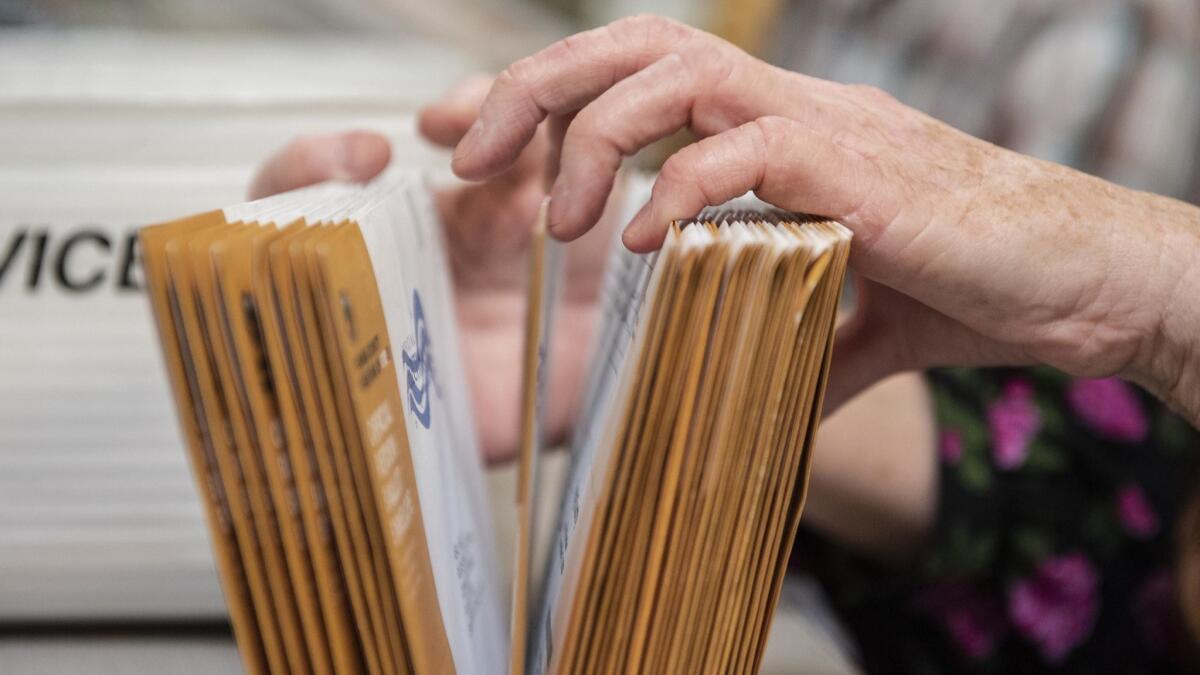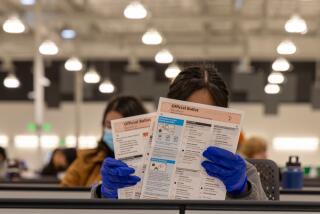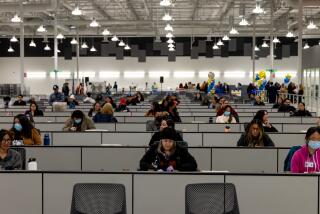Editorial: No, slow vote counts don’t mean fraud. To suggest otherwise is irresponsible

As of Thursday, more than a week after election day, about 2.7 million ballots cast by California voters remained uncounted. In all but two of the 58 California counties — lightly populated Sierra and Inyo — vote-counting is ongoing and may continue until the Dec. 7 deadline.
Why is it taking so long? Surely something must have gone terribly wrong if there are still a number of races that haven’t been decided more than a week after the election. Does it suggest malfeasance, as two Republican congressional candidates have alleged to explain why their considerable election day leads continue to shrink with each new vote tally?
Nope. Those assertions are irresponsible. The reason there are still so many outstanding ballots is that California has taken extraordinary steps to encourage people to vote, including a new law this year that allowed eligible people to register and vote as late as election day. And about 56,000 of them did just that. Virtually all of the other outstanding ballots are mail-in ballots that trickled in late (another new California law allows them to arrive up to three days after election day), as well as provisional ballots cast in person by people who had either signed up to vote by mail or showed up at the wrong polling stations. Early mail-in ballots and regular ballots cast in person on election day were counted long ago.
Enter the Fray: First takes on the news of the minute from L.A. Times Opinion »
As you might expect, it takes time to ensure that the latecomers and people at the wrong polls were actually eligible to vote. Election workers also have to make sure that people who sent in mail ballots didn’t vote twice. It’s time consuming. Even with 600 and 700 election workers toiling in shifts, Los Angeles County still has 688,000 ballots to process.
(For what it’s worth, ballot counting will probably speed up once L.A. County rolls out a major update of its voting system in 2020, which will make much of the after-the-fact ballot checking unnecessary.)
While it’s frustrating to head into Thanksgiving without having clear results in so many races, California has always taken its time. Remember Republican Rep. Darrell Issa’s narrow (and final) reelection victory in 2016? It wasn’t called until three weeks after election day. The difference now is that there were a bunch of close races this year, driven by the turmoil in Congress and the White House.
Sure, California could speed along the post-election process by nixing same-day voter registration, throwing out mail-in ballots received after election day and de-registering voters who haven’t filled out a ballot in a while. But that would make us like Florida, Georgia and other states that have taken steps to discourage voting. No thanks. It’s better to wait a few weeks for results than emulate states that actively disenfranchise their citizens.
Follow the Opinion section on Twitter @latimesopinion and Facebook
More to Read
A cure for the common opinion
Get thought-provoking perspectives with our weekly newsletter.
You may occasionally receive promotional content from the Los Angeles Times.






